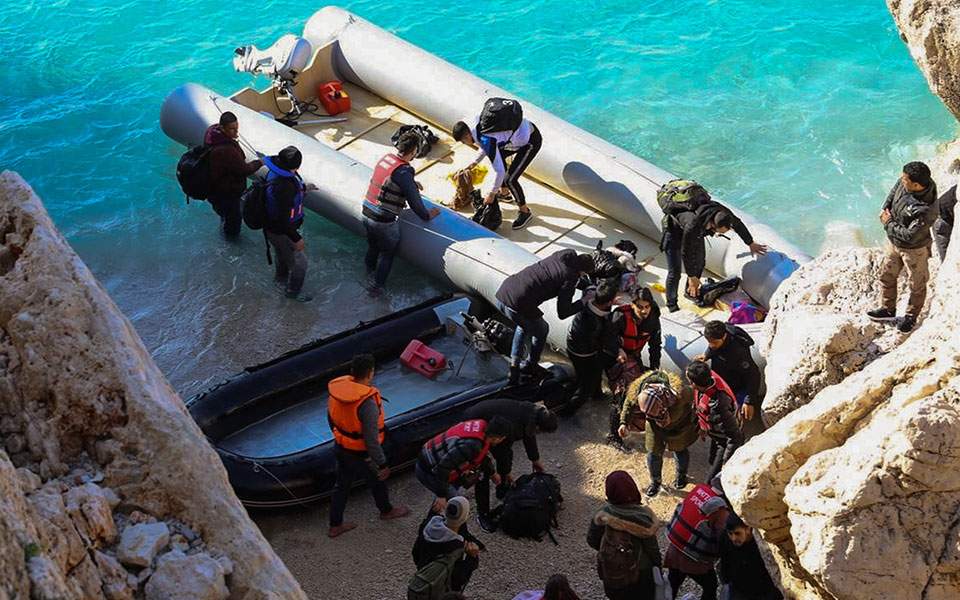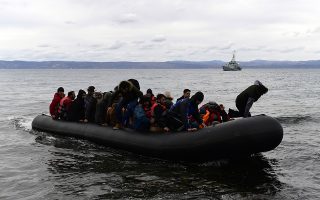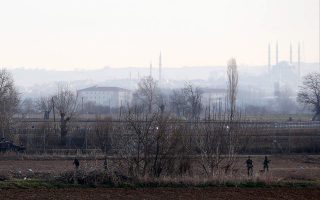Coast guard stops migrant arrivals by sea

A stricter approach by the Hellenic Coast Guard, involving the systematic enforcement of a new dogma of “aggressive surveillance” and deterrence, has effectively stopped the influx of undocumented migrants from Turkey, Kathimerini understands.
The coast guard reinforced its deterrence tactics following the crisis at the Greek-Turkish land border in early March, when thousands of migrants gathered there after Turkish President Recep Tayyip Erdogan declared Ankara would no longer stop people trying to cross into Europe.
The fear had been that a similar attempt could be made across the Greek-Turkish sea border. As a result, arrivals have basically halted. The last smuggling boat from Turkey whose occupants made it to Greece was on April 1, when 39 migrants disembarked on Lesvos.
Since then, the Hellenic Coast Guard has stopped 17 attempts by smuggling vessels to approach Lesvos and other islands. One operation lasted 24 hours, ending when the Turkish Coast Guard eventually intervened and escorted the migrants back to Turkey.
Over the past 10 days, more than 50 Hellenic Coast Guard vessels have been deployed in the eastern Aegean, along with 10 Navy vessels and 24 land, air and sea craft provided by the European Union’s border monitoring agency Frontex.
The agency’s presence in Greece was bolstered after the March border crisis and is expected to be maintained at that level until July 6 amid concerns that arrivals will increase with the onset of summer and the gradual lifting of restrictions on movement imposed to curb the spread of the new coronavirus.
It is expected that restrictions in place at migrant reception centers, which on Monday were extended until May 10, will be prolonged further until May 18. According to the current rules, residents of the facilities can only leave with written authorization, while on the islands migrants are allowed to leave the camps between 7 a.m. and 7 p.m., subject to certain preconditions.
Meanwhile, draft legislation aimed at “improving” existing migration policy is expected to go to a vote in Parliament later this week.
The bill has provoked criticism from the opposition as it foresees Migration Ministry funds being set aside for “classified national needs,” while human rights groups fear that it will undermine asylum seekers’ rights.





